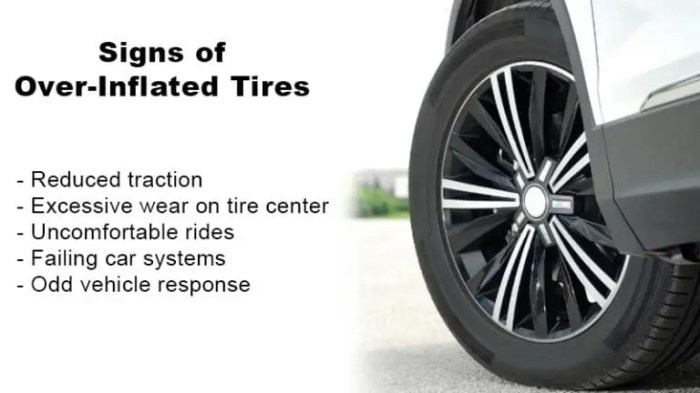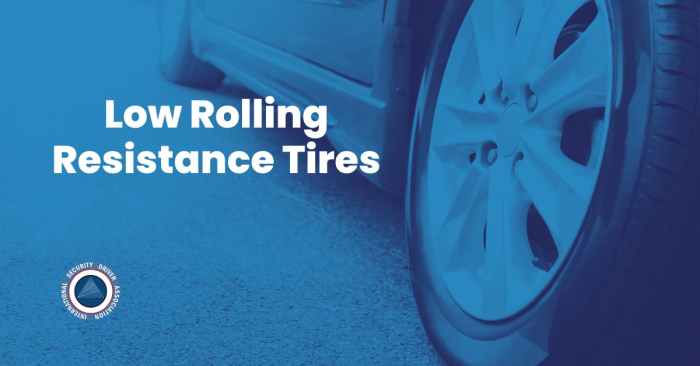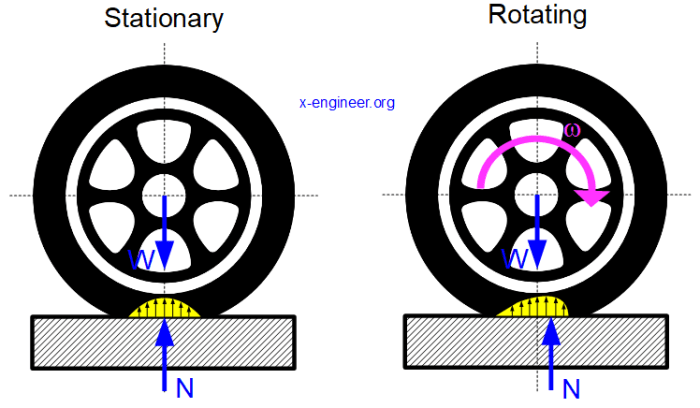Incorrectly inflated tires increase surface rolling resistance. – Incorrectly inflated tires increase surface rolling resistance, a crucial factor impacting vehicle performance, safety, and environmental sustainability. Understanding the consequences of improper tire inflation empowers drivers to optimize their driving experience, enhance safety, and contribute to responsible environmental stewardship.
This comprehensive analysis delves into the effects of incorrect tire inflation on rolling resistance, fuel efficiency, handling, stability, tire wear, and safety concerns. It also quantifies the economic impact and explores the environmental implications, highlighting the importance of proper tire maintenance for both personal and collective well-being.
Effects on Vehicle Performance

Incorrectly inflated tires significantly impact a vehicle’s performance. Underinflated tires increase rolling resistance, leading to higher fuel consumption and reduced efficiency. The increased friction between the tire and road surface consumes more energy, resulting in lower fuel economy.
Moreover, improperly inflated tires affect vehicle handling, stability, and braking. Underinflated tires can cause excessive sidewall flex, impairing the vehicle’s ability to maintain its intended path, especially during cornering. They also reduce the tire’s contact patch with the road, decreasing traction and increasing the stopping distance.
Tire Wear and Damage
Incorrect tire inflation accelerates and unevenly distributes tire wear. Underinflated tires experience increased stress on the sidewalls and shoulders, leading to premature wear and potential tire failure. Overinflated tires, on the other hand, wear more rapidly in the center of the tread, reducing their lifespan.
Additionally, improperly inflated tires increase the risk of punctures, blowouts, and other damage. Underinflated tires are more susceptible to punctures due to the reduced cushioning effect, while overinflated tires are more prone to blowouts because of excessive internal pressure.
Safety Concerns, Incorrectly inflated tires increase surface rolling resistance.
Incorrectly inflated tires pose potential safety hazards. Underinflated tires reduce traction, increasing the risk of skidding and loss of control. They also impair the vehicle’s ability to brake effectively, extending the stopping distance.
Overinflated tires, while providing improved handling in some conditions, can also be dangerous. They are more likely to burst under stress, potentially causing accidents. Proper tire inflation is crucial for overall vehicle safety, ensuring optimal traction, braking performance, and stability.
Economic Impact
Incorrectly inflated tires have significant financial implications. Increased fuel consumption due to higher rolling resistance adds to fuel expenses. Premature tire replacement resulting from uneven wear and damage further contributes to economic costs.
Moreover, potential repairs associated with tire failures, such as blowouts or damage to other vehicle components, can be substantial. Neglecting proper tire inflation can lead to long-term economic consequences for vehicle owners.
Environmental Considerations
Incorrectly inflated tires contribute to increased carbon emissions. Higher rolling resistance due to underinflated tires leads to greater fuel consumption, resulting in higher carbon dioxide emissions. Additionally, premature tire disposal due to uneven wear or damage increases the environmental burden.
Proper tire inflation promotes responsible tire maintenance, extending tire lifespan and reducing the frequency of tire replacement. This reduces the environmental impact associated with tire production, disposal, and carbon emissions.
Question & Answer Hub: Incorrectly Inflated Tires Increase Surface Rolling Resistance.
How does incorrect tire inflation affect fuel efficiency?
Underinflated tires increase rolling resistance, which requires more energy to propel the vehicle, resulting in reduced fuel efficiency.
What are the safety concerns associated with incorrectly inflated tires?
Incorrectly inflated tires compromise traction, handling, and braking performance, increasing the risk of accidents.
How does incorrect tire inflation contribute to environmental impact?
Increased rolling resistance due to underinflated tires leads to higher carbon emissions and premature tire disposal, both of which have adverse environmental consequences.

